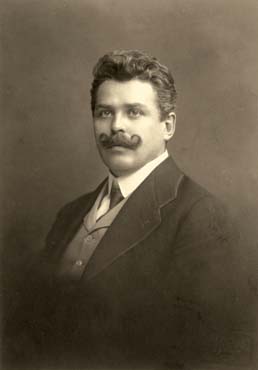Jan Jánský facts for kids
Jan Jánský (born March 30, 1873, in Prague, Czech Republic – died September 8, 1921, in Černošice) was a very important doctor. He was a neurologist, which means he studied the brain and nerves, and a psychiatrist, who helps people with mental health.
Jan Jánský was the first person to sort human blood into the four main types: A, B, AB, and O. This amazing discovery helped doctors understand blood much better and has saved millions of lives around the world!
His Early Life and Studies
Jan Jánský studied medicine at Charles University in Prague. After he finished his studies in 1899, he started working at a special clinic for people with mental health conditions. He later became a professor at Charles University and a doctor.
Serving in World War I
During World War I, Jan Jánský worked as a doctor on the front lines for two years. This was a very tough job, helping injured soldiers. In 1916, he had a heart attack, which meant he had to leave the army.
After leaving the army, he became the head of the neurology and forensic psychiatry department at the Central Military Hospital in Prague. This meant he looked after soldiers with brain and nerve problems, and also helped with legal cases involving mental health.
Jan Jánský suffered from a heart condition called angina pectoris. He sadly died from Coronary artery disease in 1921.
His Lasting Impact
Jan Jánský was a big supporter of blood donations. He believed that people should donate blood to help others. Today, in the Czech Republic and Slovakia, people who donate blood regularly receive a special medal named after him.
In 1953, a movie was made about Jan Jánský's life and his important work. It was directed by Martin Frič.
 | Janet Taylor Pickett |
 | Synthia Saint James |
 | Howardena Pindell |
 | Faith Ringgold |


